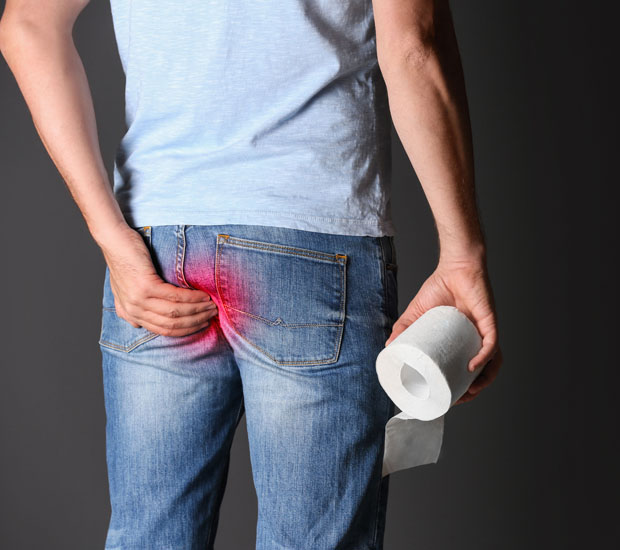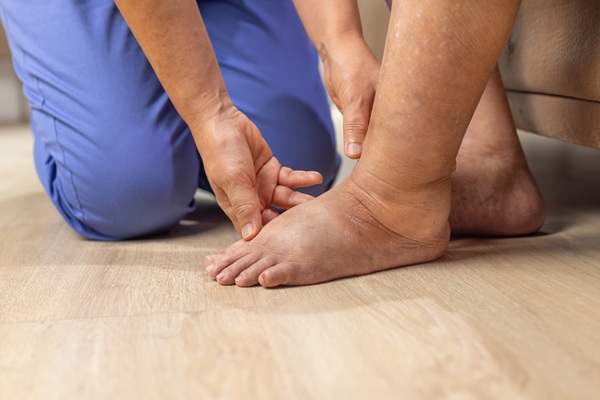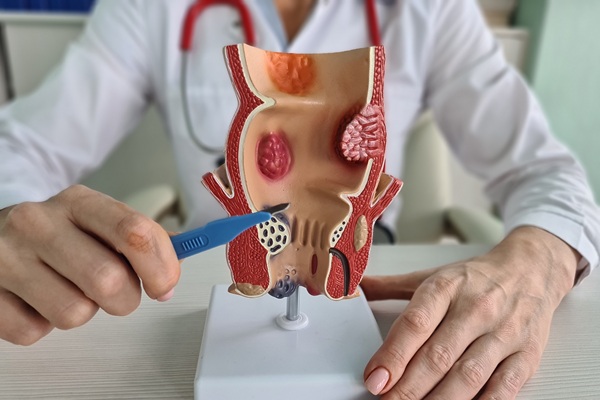Hemorrhoid TreatmentOrange, CA
Hemorrhoids, also known as piles, are varicose veins that develop in the rectum and lower intestine, causing pain and discomfort. Fortunately, our team offers minimally-invasive and non-surgical treatment options to provide relief. There is no reason to wait to begin treatment; in fact, avoiding professional care can worsen symptoms.
Our Vascular and Interventional Specialists team of Orange County can help guide you or your loved one through every step of the treatment process. To schedule an appointment or to learn more about our services, call us at 714-598-1194.
What are Hemorrhoids?
The term hemorrhoid describes a swollen vein in the rectum that can be painful, itchy, and cause bleeding. Hemorrhoids are common in adults, especially by or after the age of 50. They occur due to increased pressure on veins around the anus and lower rectum. The condition can become more severe if the patient strains to pass stool (defecation) or has an inflammatory bowel disorder such as ulcerative colitis or Crohn's disease. In many cases, these conditions also affect the digestive tract.
Hemorrhoids have two classifications, internal and external. Internal hemorrhoids occur inside the anal canal and are not visible by the naked eye. External hemorrhoids, which the naked eye can see, develop outside the anus. Prolapsed hemorrhoids may also occur in both classifications. Prolapse happens when an internal or external hemorrhoid becomes congested with blood, causing it to protrude through the outer ring of the muscle around the anus.
Thrombosed hemorrhoids are an extreme case in which blood clots form within a vein inside or outside the rectum. Fissured hemorrhoids develop when there is a tear in the rectal wall. Hemorrhoid cysts are similar to other cysts commonly found throughout the body. If untreated, they can lead to painful symptoms such as bleeding and itching around their location, along with swelling from recurrent infections that may require surgery for removal.
Check out what others are saying about our Hemorrhoid Treatment services on Yelp: Hemorrhoid Treatment Orange
Signs and Symptoms
Hemorrhoids are caused by blood vessels that become swollen and inflamed. Inflamed blood vessels can have numerous causes, including straining during a bowel movement, pregnancy, obesity, chronic constipation, heavy lifting, constant strenuous activity, and prolonged sitting.
Patients' symptoms depend on the type of hemorrhoid and the severity of the condition. However, the most common symptoms patients report include:
- Pain includes feeling a "sharp stabbing" on one or both sides of the anus
- Rectal bleeding
- Swelling
- Feelings of incomplete emptying after a bowel movement
- Lumps in the rectum
- Itching in or around the anus that worsens around bowel movements
- Discomfort or feelings of a "dull ache"
It is important to note that rectal bleeding does not always stem from hemorrhoids. It can also stem from more serious medical conditions that should be addressed immediately by a health care provider.
If the patient is experiencing unbearable symptoms, such as excessive bleeding, pain, and swelling, and feel they cannot wait until their scheduled appointment, we encourage them to seek emergency medical attention. We ask that the patient makes us aware by calling our office after the fact.
Testing and Diagnosis
Hemorrhoids will be diagnosed by one of our vascular specialists. Once the patient schedules an appointment with one of our specialists, we will review their medical history and conduct a digital (physical) examination of the anus and rectum.
During the examination, the vascular specialist will feel for any lumps or abnormalities with a gloved, lubricated finger. They may also be able to see hard lumps through a procedure called anoscopy or sigmoidoscopy. Anoscopy is a visual inspection of the anal canal. The doctor will perform a sigmoidoscopy to visually inspect the lower part of the patient’s large intestine.
We may order additional tests to determine if the patient has hemorrhoids or a condition with similar symptoms. Also, additional tests may be required if the patient has internal hemorrhoids, as external ones are visible to the naked eye. These tests include:
- Fecal occult test (Stool sample). Checks stool for blood that the naked eye cannot see
- Anoscopy. Visual inspection of the anal canal
- Sigmoidoscopy. Visual inspection of the lower part of the large intestines
- Colonoscopy. It will only be used to rule out other conditions and is done by a fiber-optic instrument with a camera used to look into the colon
Our vascular specialist will advise a treatment plan after reviewing the test results.
Treatment Options
Fortunately, there are numerous ways to treat hemorrhoids depending on the type of hemorrhoid the patient has and its severity. While our team strives to perform treatments that produce long-term results, we do understand that some patients have chronic cases. The treatment options listed below are meant to provide relief each time a hemorrhoid case surfaces. Treatment options include medication, minimally invasive procedures, and surgery.
Medication
Patients may be prescribed or take over-the-counter (OTC) medication such as antibiotics, suppositories, and creams. While some find short-term relief from OTC hemorrhoid products, others may find them ineffective. The doctor may prescribe antibiotics and suppositories if an infection and excess inflammation are present. Antibiotics can also help with itching and swelling. Suppositories are inserted into the rectum, where they dissolve and work internally on the affected area. They can come in the form of gel or liquid. Preparation H is a well-known brand with witch hazel as an active ingredient. Witch hazel can alleviate itching and pain from hemorrhoids.
Creams can be applied directly to the external or internal hemorrhoids for short-term relief from itching, burning, and pain associated with the condition. It is important to note these are not permanent solutions, and patients should still consult with a health care provider to see which option is best for them.
Minimally Invasive Procedures
For patients who are experiencing bleeding or pain-related symptoms, we will recommend one of the following treatment options:
- Rubber band ligation. Two rubber bands are placed around the hemorrhoids to cut off their circulation so they will fall off within a week.
- Sclerotherapy. The doctor will inject a solution into the hemorrhoid to shrink it.
- Coagulation. The use of infrared light, heat, or lasers will harden and shrivel the hemorrhoid.
All of the above procedures will be performed in our medical center, so there is no need for patients to schedule multiple appointments in various locations.
Aftercare
Hemorrhoids can become a chronic condition, and the best way to stay ahead of the curb is by adopting a preventative lifestyle. Along with following the specialist's recommendations, patients should adopt a high-fiber diet and increase their daily water intake to avoid constipation. For some, consuming a stool softener or laxative may be necessary. Additionally, exercising regularly, especially after eating, helps the body not to remain sedentary while the digestive system breaks down food properly. In turn, this will help lessen the risks of straining when it is time to have a bowel movement.
Frequently Asked Questions
Will my insurance cover this procedure?
Coverage depends on your insurance provider and plan. To ensure coverage, confer with your provider to discuss the recommended treatment plan and its stipulations. Alternatively, you may contact our office to discuss finance options.
Can I use OTC treatments?
Yes. If you need short-term relief in between your appointments. Note that OTC treatments do not provide long-term results. Our team strives to customize treatment plans to provide our unique patients with effective long-term results.
What happens if my hemorrhoids return after my treatment?
Patients with chronic hemorrhoids may need either hemorrhoidectomy or hemorrhoid stapling. Both are surgical procedures designed to help patients with severe or chronic cases. If you are experiencing a chronic case, our specialist will advise on an effective long-term treatment plan.
How can I prevent hemorrhoids?
Patients can help their condition by adopting a high fiber diet, being active (no prolonged sitting), and maintaining a good digestive system. We understand every patient is different. That is why the vascular doctor you are paired with will be happy to advise on any other lifestyle changes that may prevent another case of hemorrhoids.
How do I know my type of hemorrhoid?
We will review symptoms, medical history, and a digital exam during your first appointment. Our doctor will be able to confirm a diagnosis then. Alternatively, if hemorrhoids are not evident, we will work to determine a diagnosis that is producing similar symptoms.
Call Us Today
For those struggling with hemorrhoids, know you are not alone. This condition affects millions of Americans. Our team of vascular and interventional specialists in Orange County offers multiple treatment options. To schedule an appointment or learn more, call us today at 714-598-1194.
Vascular & Interventional Specialists of Orange County is located at 1010 W La Veta Ave Suite 320 Orange, CA 92868.





